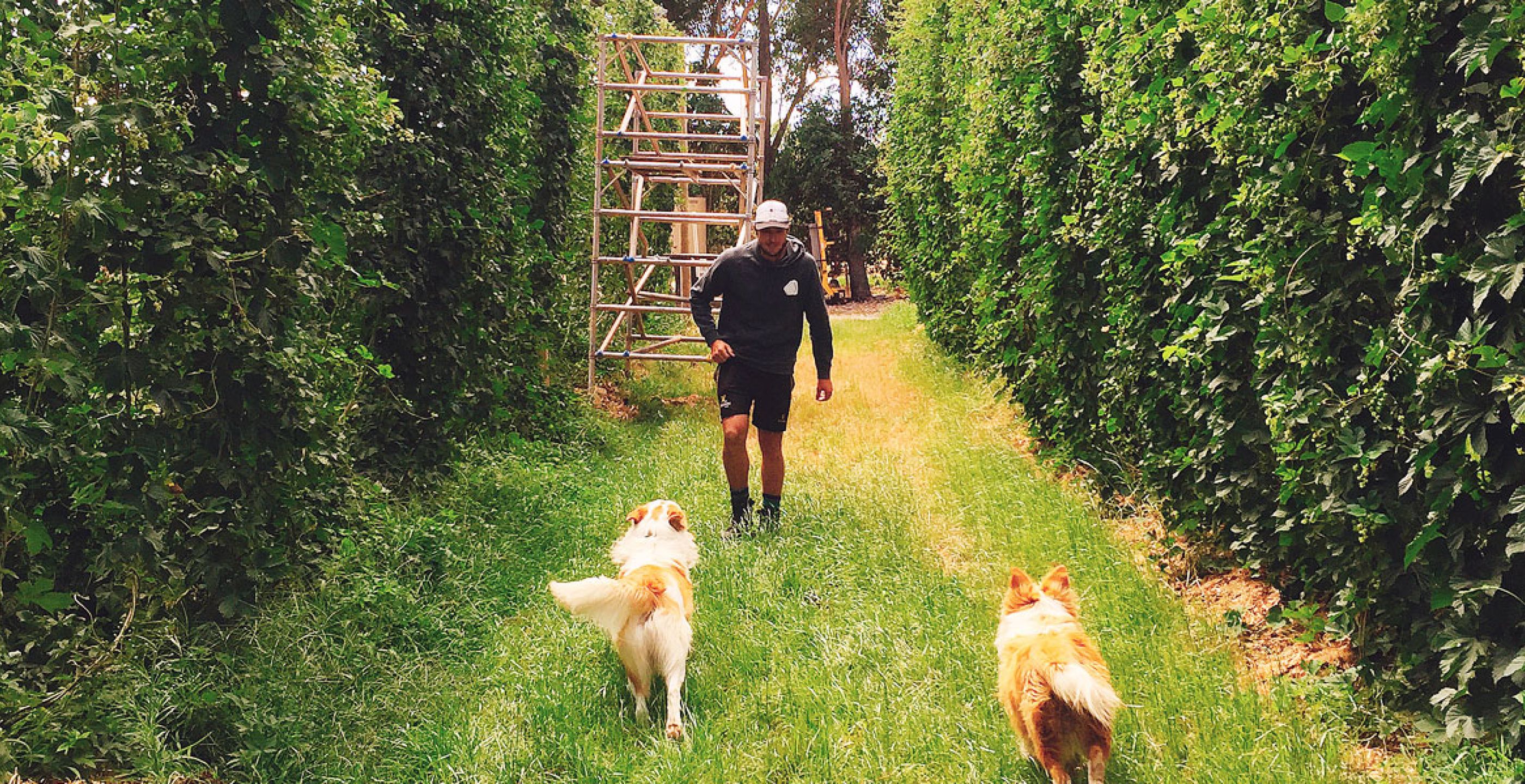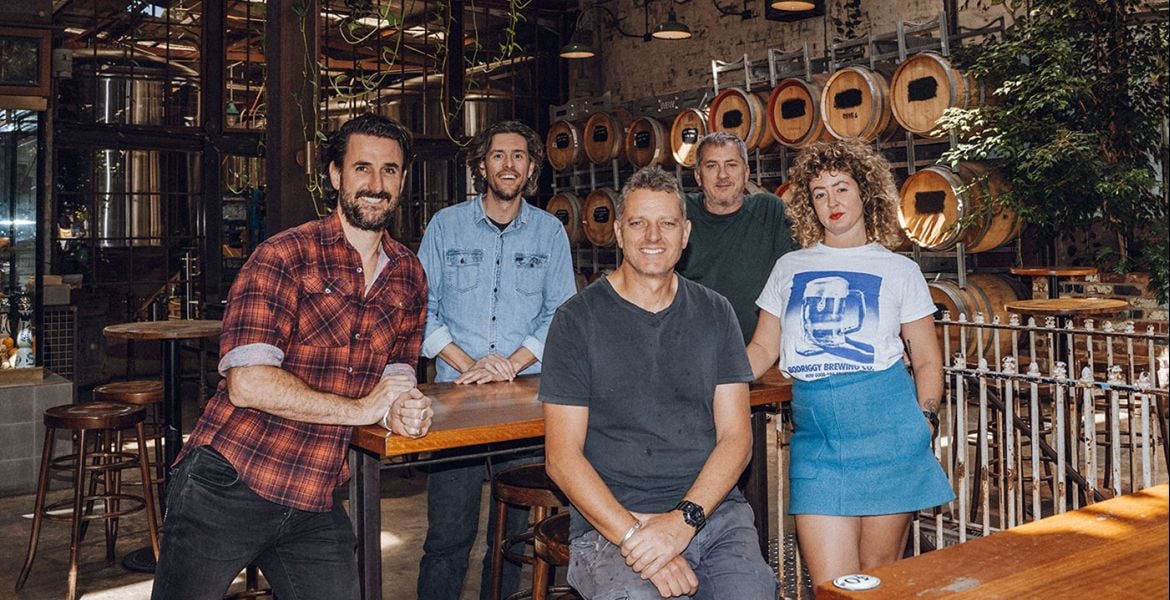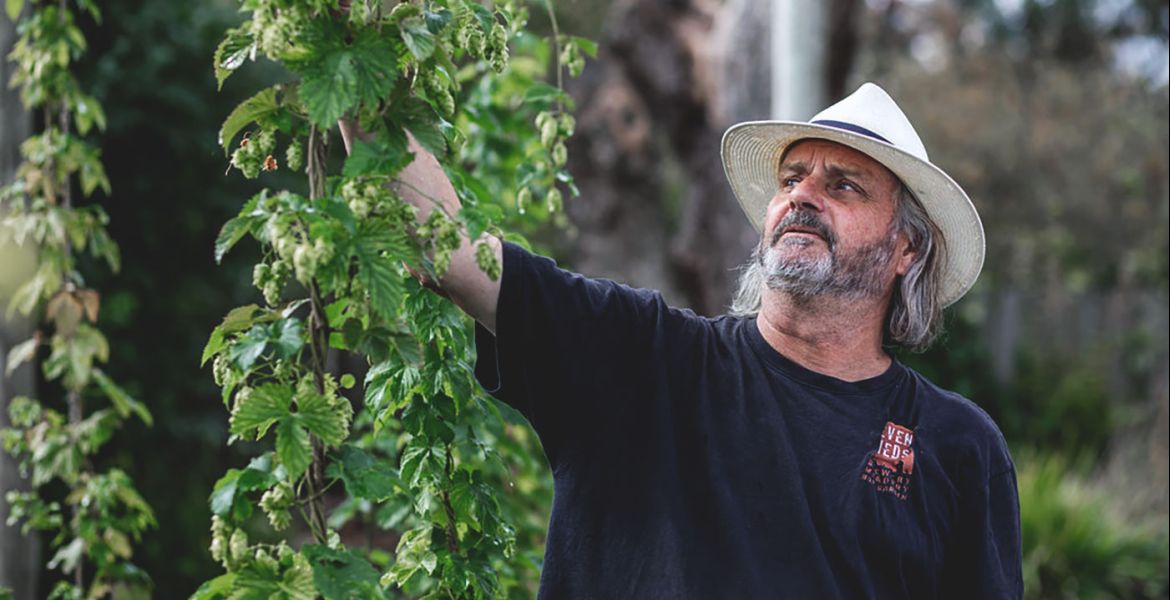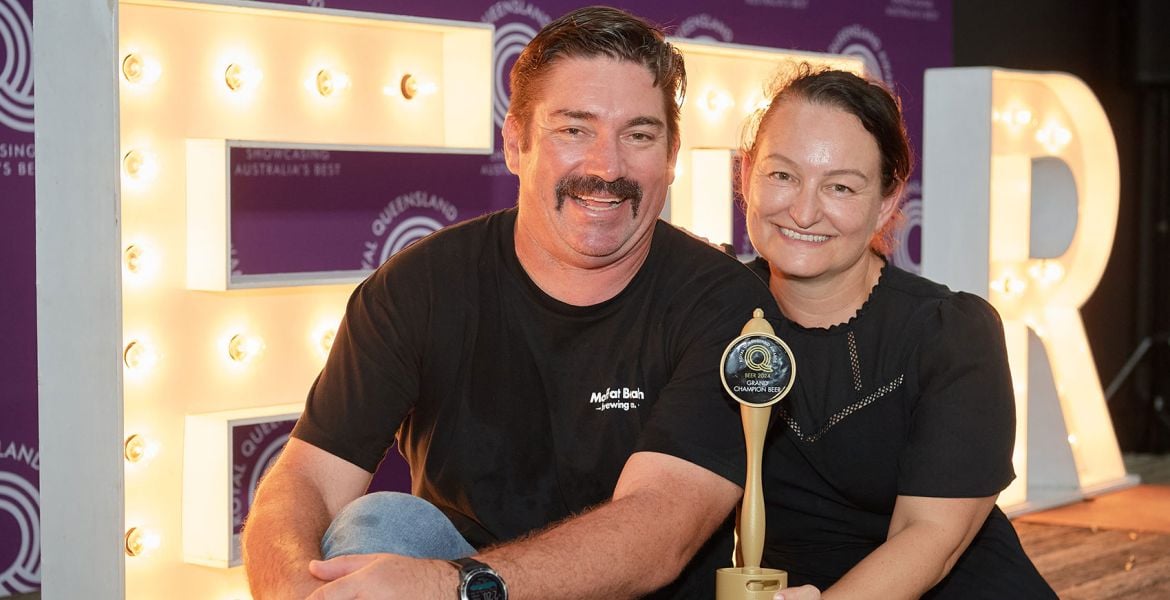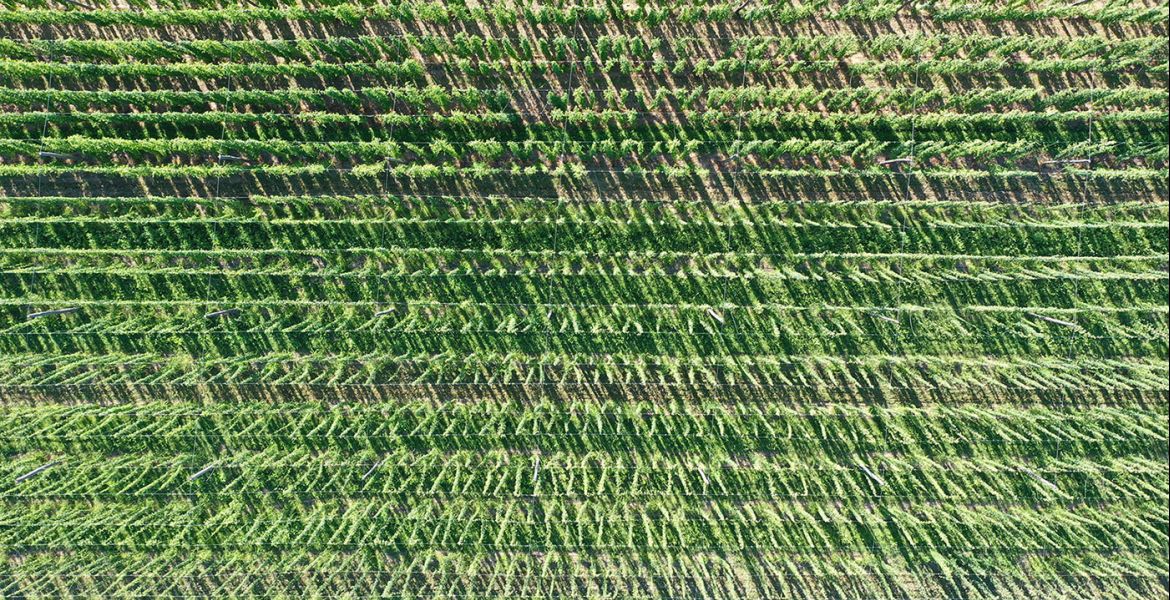Just outside the seaside tourist gateway town of Busselton, less than three hours south of Perth, Hamish Coates is creating a unique Australian brewery. Rocky Ridge Brewing Co will be self sufficient, sustainable and off grid brewery.
The brewery’s slogan: “Everything we brew, we grow” places its intention – to create a sustainable future for craft beer – front and centre. Guy Southern took the scenic route down south to find out more.
Arriving at Rocky Ridge Brewing Co, you’d be forgiven for thinking you'd arrived at the wrong address. After a 15 minute drive east of Busselton, on increasingly narrow roads, the entrance to the property is as humble as a fifth generation dairy farm can get.
The farm sign and tiny residential letterbox in front of the gravel driveway share the property’s entrance with a fading WA Water Corporation sign for an Environmental Improvement Initiative. The government body won awards a decade ago for its work on infill sewerage and a state-of-the-art wastewater treatment plant to reduce the amount of nutrients entering Geographe Bay, particularly from the surrounding dairy industry.
But what on earth does this have to do with beer?
In a word: everything.
The government signed contracts with 62 landholders in the Busselton region, including the Rocky Ridge dairy farm, which supported the development of moves to maximise the efficiencies of farming practices and to minimise environmental impacts through grants and onsite consulting.
Through this process, a mindset developed on the farm and, when the opportunity came to move from under udders to the top of tanks, head brewer Hamish Coates had a clear vision of how Rocky Ridge Brewing Co would operate.
While Hamish’s experience on the family dairy farm was the base for a practical and resourceful attitude, it was his time studying in Perth that started the passion for beer.
“I’m fifth generation back here," he says. "I moved away to study Geology and Physics at UWA up in Perth for seven years and worked up there for a bit then moved back down here because I needed to get back onto the farm.
“Along the way I learnt a lot about brewing, particularly while I was at uni. Being pragmatic, I didn’t have enough money to support myself and, when I moved back down here, I landed a job at Cheeky Monkey, which was awesome.
“I was working down there for two years with Ross [Terlick] and learnt a lot. Then the old boy [Colin Coates] propositioned and said should we start a brewery.
"Obviously, I had to say yes,” says Hamish laughing.
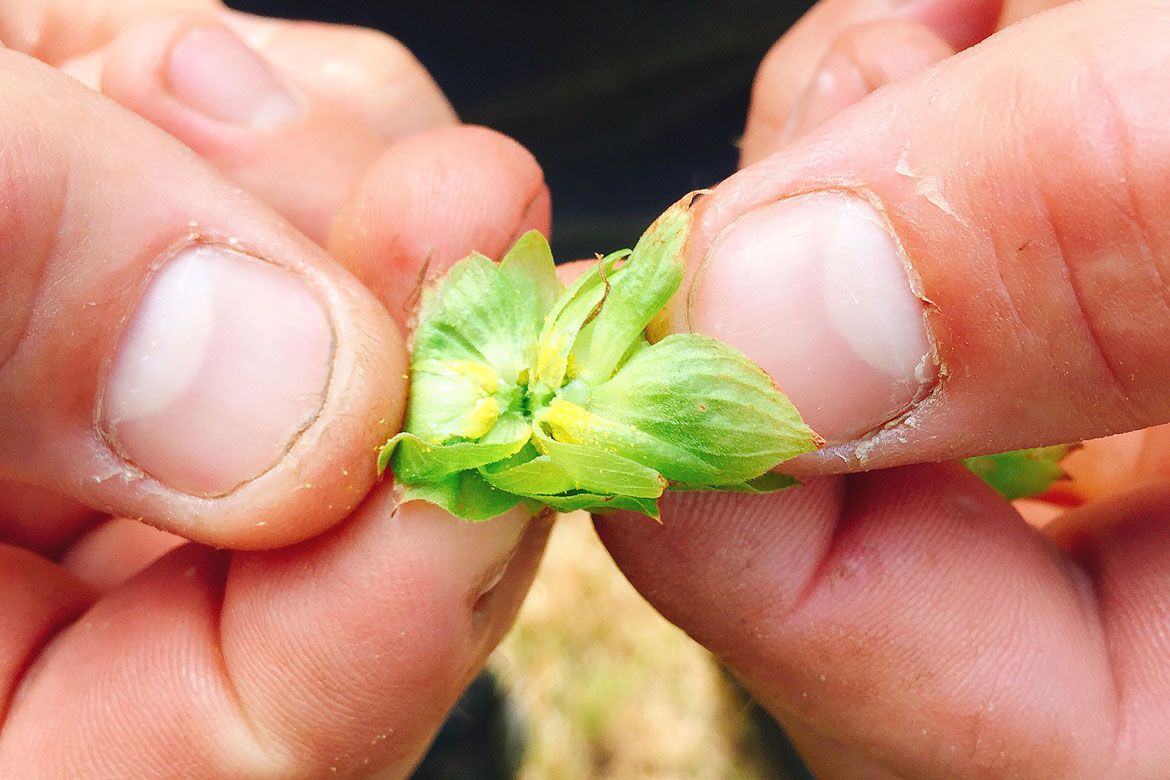
It was during his time at Cheeky Monkey Brewery that Hamish started growing hops. After three small but successful seasons, and now with the opportunity to start a brewery from scratch, these horticultural experiments became the keystone for the new venture.
“Part of the reason behind the brewery was I started growing hops four years ago. The old boy actually pushed for this angle because it makes sense. We can grow the hops and they actually have good yield here. They're happy, they're healthy and they are getting absolutely pummelled by the wind.
“Next year, we are doing an expansion and we’ll have about half a paddock under bine and we’re going to go to 6.5 metres and we’ll put in a proper wind break as well,” says Hamish.
This season’s 600 hop cultivars, made up of 12 different varieties, have grown to 5.5 metres, all of which are fertilised with compost from the dairy. Cascade and Chinook have been the most happy with Busselton’s Mediterranean climate. The recently revived Red Earth hop from the Albany region of the South West, named for its ochre petals, has also taken well but its onion like qualities may make it challenging to use.
“It’s been a learning curve!” says Hamish.
Gaining hop knowledge involved “a lot of reading" and "a lot of time researching".
"I’ve learnt a lot more about hops in the past six months than I had done in the previous three years of growing them. I need to get good yields but I need good essential oil counts, good percentages," he says. "That’s what we are going for. We want fresh. We want it to taste fresh.
“We are not pelletising them [but] throwing them straight into the beer. We’ll keep pushing ahead with that and that just means most of my beers will be based around those two hops as base elements.”
Aside from the flowers that go into a potential wet hop harvest beer, the crop will be dried using a small bespoke drying room that reduces the wet hop weight by about 80 percent to ensure they are stable for use and maintain the desired characteristics during the rest of the brewing year.
In keeping with Rocky Ridge’s passion for provenance and sustainability, all of the barley is grown locally too.
“Barley is grown on a block up the road. It grew really, really well. As long as we can replicate that going forward them we shouldn’t have too many dramas,” he says.
Rocky Ridge is currently using small scale maltsters Keene Hills' one tonne malting plant three hours east in Dumbleyung while the fledgling company finds its feet. The ideal situation however will be to create a malting facility onsite – something Hamish has started preparing for.
“We’re just doing a few spec malts on a pilot system that we’ve got at a mate's place that’s a metal fabricator. That’s been an interesting little experiment,” he says.
It's an approach we're starting to see at a growing number of breweries across Australia. While many have small hop farms that provide for a few brews a year, there are others taking things further. In Tasmania, both Van Dieman and Two Metre Tall are moving ever closer to creating "estate ales" on their respective farms, with the former having his own barley malted by Not For Horses in nearby Launceston. Yellingbo Brewing Company, in the Dandenongs east of Melbourne, grows hops that are used exclusively in collaborative brews with local breweries. In the Adelaide Hills, Lobethal Bierhaus (which has just released a lentil beer) started using its own mini-malting machine last year.
At Rocky Ridge, the ultimate aim is similar to the Tasmanians mentioned above. The brewing will use 250,000 litres of rainwater storage with additional filtered ground water currently used for cleaning. Plans are in place to expand the rainwater storage to meet the brewery’s 300,000 litre annual capacity and associated cleaning requirements.
The final piece of this self sufficient brewing jigsaw is yeast: these little creatures are local as they can get.
“It's taken from an air sample down here and was cultured by a mate of mine up at UWA," says Hamish. "Our first ferment with this yeast is underway at the moment and, so far, we're going strong."
The brewery itself features a 15 hectolitre system including mash tun, lauter tun and kettle whirlpool to allow for easier expansion to four vessels if needed. It is set up with a large volume in mind.
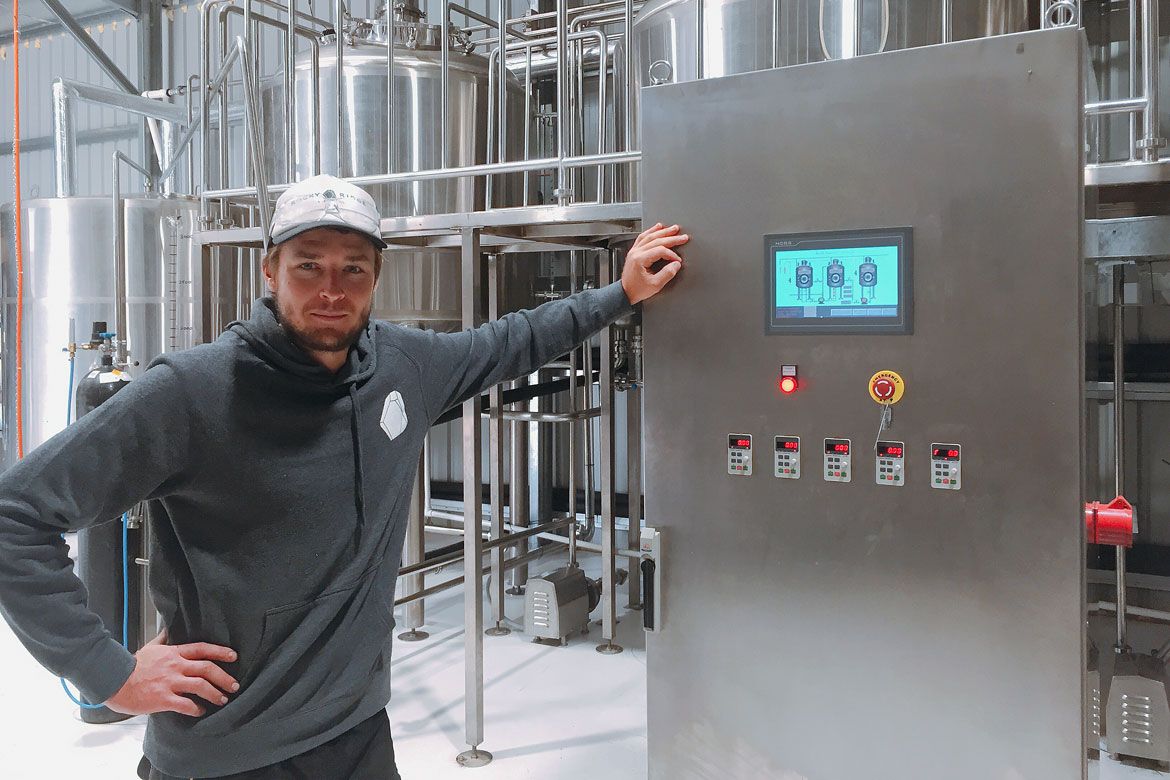
Once onsite, modifications were made to the Chinese manufactured kit designed to ensure maximum energy efficiency. The brewery uses off grid three phase power via solar panels charging a 70 kilowatt battery bank. There's a backup generator in case of power issues and plans are in place for a biodigester that will turn effluent from the dairy into gas for the brewery.
The first test batches were completed just before Australia Day and, in Hamish’s characteristically systematic approach, the process was repeated two days later with slight adjustments so that the batches could be compared for faults and brewery efficiency.
Hamish has the first commercial releases – a core range that includes a pale ale, an IPA and a session saison – planned for release from mid-March in kegs, with cans following from mid-May. Looking ahead to the challenges of securing tap points, the ever resourceful Rocky Ridge team has found its own way to get its beer directly to the public.
“We are putting a little cellar door in town," says Hamish. "Liquor Licensing regulations changed about 18 months ago, allowing for a satellite cellar door for a producer's license for beer, wine and distillers. Because this is primarily an agricultural enterprise – we’ve got the diary fully operational – it’s not a great place to have the public coming and we’re also a bit too far off the beaten track here.”
The planned location is already a tourism hotspot over summer and there are proposals in place for multiple short stay accommodation and a five storey hotel near the planned cellar door as part of the Busselton foreshore redevelopment. The 100 person capacity venue will focus solely on Rocky Ridge beers with local food trucks – council approval dependent – supplying the nibbles.
The cellar door will also be a few hundred metres from another brewery, Blue Mile, whose site works have just commenced.
Ensuring that all of the resourcefulness, research and hard work will stand out in an increasingly crowded marketplace, Hamish enlisted the brand design help of another university mate, Matt Nankivell, who is currently working as a freelance art designer for M&C Saatchi London.
“He’s quite brilliant. We asked him to go away and come back with some designs and he came back with three and we said, ‘That’s the one’," says Hamish.
"I know lots of people say it’s a hard one but it was a very easy process. We were very lucky with him, he did a fantastic job. It would be nice to think that we had a huge amount to throw at it but it had all been done on a shoestring.”
Matt’s design is anchored to the property’s ironstone ridge that is its namesake but also a clean, modernist expression of Rocky Ridge Brewing Co’s vision for a sustainable craft beer future.
It's a clear vision that has guided every decision the team has made so far and bodes well for the unique journey that lies ahead.
For more, check out Rocky Ridge's website.
About the author: Guy drinks and writes about beer, goes for a run most mornings and makes his own chilli hot sauce. Find more on Goodtimes Craft Beer via Facebook and Instagram.



